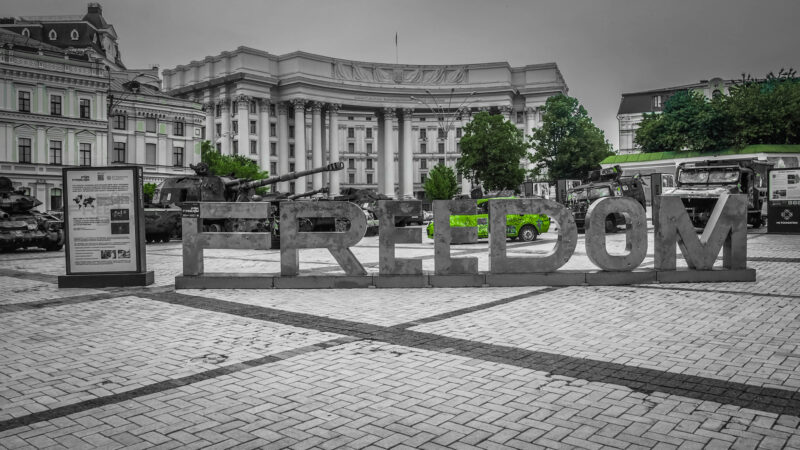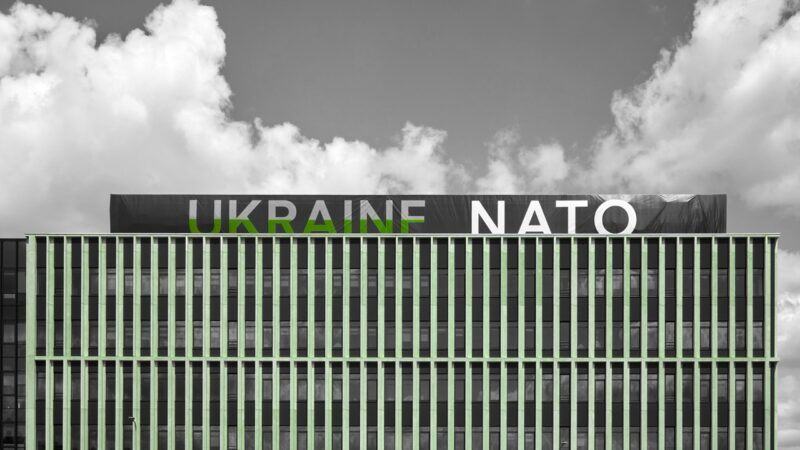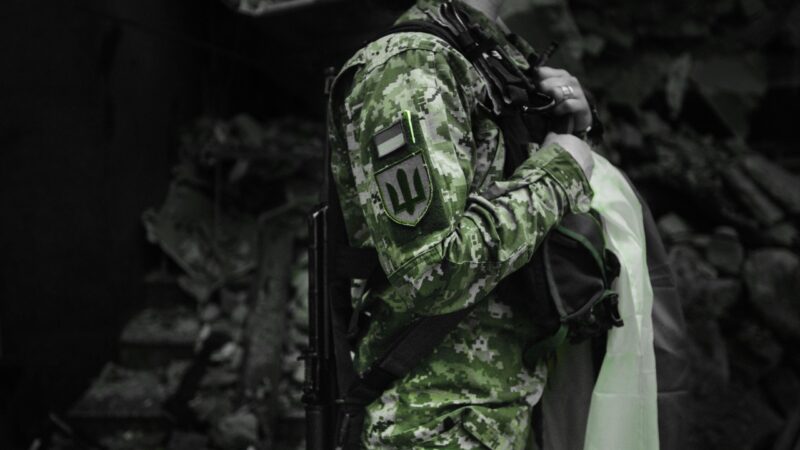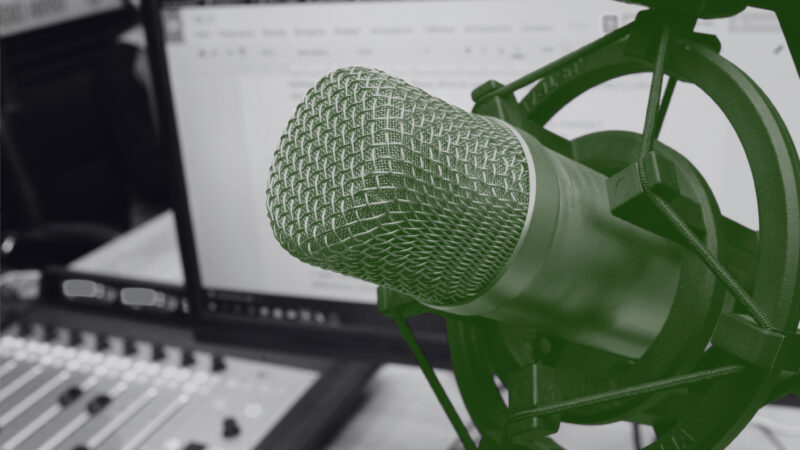Playing into the hands of Kremlin propagandists: “War in Ukraine”
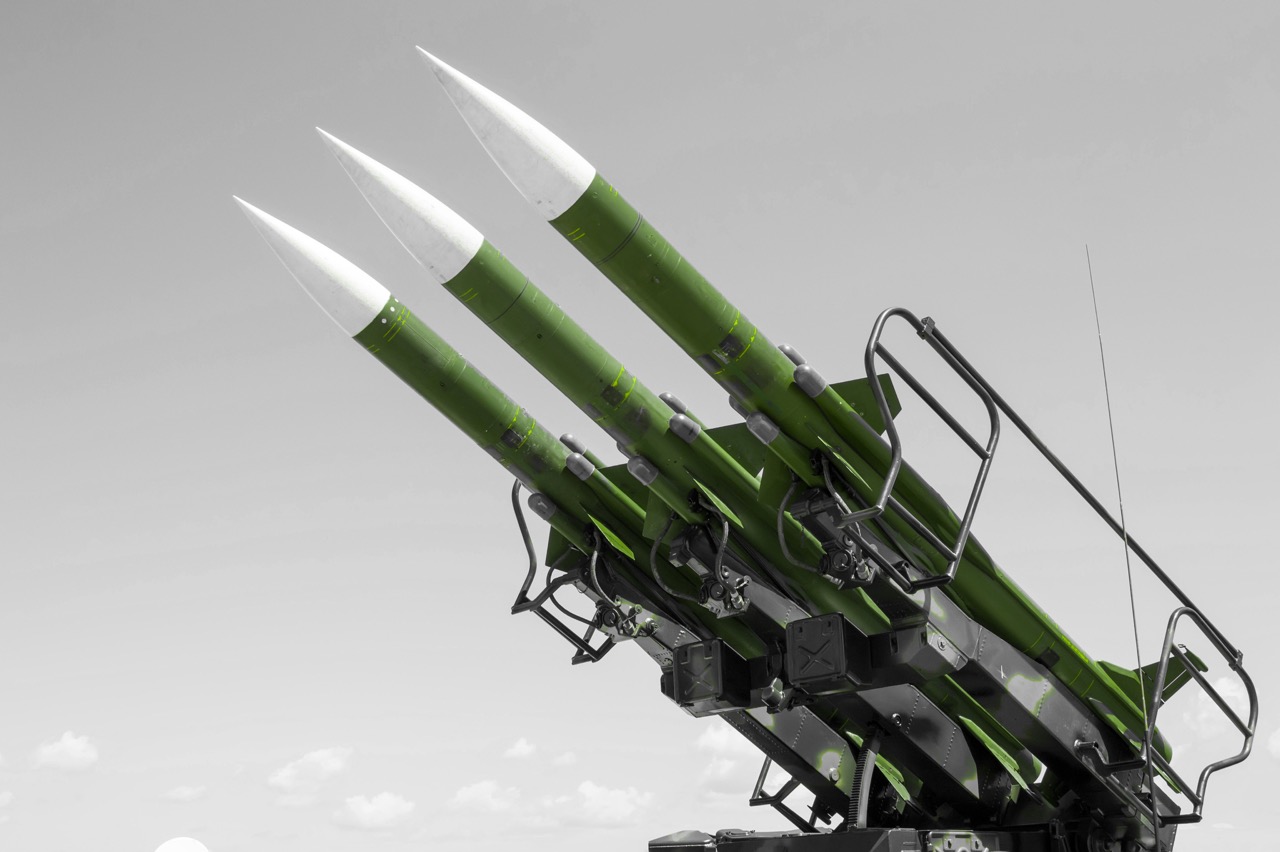
Following the 500th day of Russia’s genocidal war on Ukraine, the challenge still remains of saying things as they really are. Statements such as “war in Ukraine” are used instead of “Russia’s war in Ukraine” or the “Russo-Ukrainian war.” Moreover, a tendency has been growing to entertain the idea of “hearing both sides,” although it’s not quite clear what is meant here. Russia launched an unprovoked war on Ukraine, and Ukraine is under Russia’s attack. What can we possibly hope to hear from Russia—which attacked a sovereign state, violated significant international agreements, and continues to commit crimes in Ukraine that fall under the category of genocide?
What may seem like a minor detail is, in fact, a significant factor that plays into the hands of the Kremlin’s propaganda. This is one reason why it is essential to clearly specify that it is Russia which unleashed a brutal assault against Ukraine and avoid phrasing such as “war in Ukraine.”
Years before Russia’s initial invasion of Ukraine in 2014, the Kremlin had been feeding the world its narratives about the “great Russian World,” which seeks peace, stability, and multilateralism in the region and in the global context. The occupation of Crimea and parts of the Donbas was presented by the Russian government as Ukraine’s “internal conflicts,” dealing with which Russia as “the elder brother” wanted to assist Ukraine. On the one hand, Russia attempted to assert an indisputable dominance over neighboring countries that formerly happened to be a part of the USSR.
On the other hand, the Kremlin was consistently representing the first stage of the Russo-Ukrainian war as Ukraine’s “internal conflict” or “civil war.” Moscow’s rhetoric then gradually transitioned to emphasize Ukraine as a “failed” state that could not manage its “internal problems.” This subsequently led to Russian President Vladimir Putin’s outright denial of Ukrainians as a nation distinctive from Russians. In his infamous 2021 article “On the Historical Unity of Russians and Ukrainians,” Putin baldly denies the existence of Ukrainians, calling Russians and Ukrainians “one people.” This statement literally defines Ukrainians as Russians. The article, which is filled with historical distortions and lies, can be viewed not only as an ideological preparation for Russia’s war against Ukraine but also as a document that promotes Russia’s elimination of Ukrainians if they continue to stand up for their national sovereignty and distinctiveness.
Russia’s war in Ukraine proves that the current Russian regime will continue to exterminate Ukrainians as long as they resist. At the same time, Ukrainians will continue to resist until Russia succumbs to the realization that Ukrainians are not going to give up their culture, history, and independence.
Thus, statements such as “war in Ukraine,” used either intentionally or unintentionally, contribute to the distorted representation of the events: they imply that Ukraine is struggling with some internal problems and conflicts. This distortion is made particularly clear when the matter is introduced to audiences that are not knowledgeable about Ukraine.
Although Ukraine was in the news in 2014 and has been widely covered since 24 February 2022, we have to be realistic about how much educational effort will have to be invested to increase awareness regarding Ukrainian culture and history. Russia, on the other hand, has long been capitalizing on the international community’s fascination with the “great Russian culture.” As we learn today, there have been a lot of misrepresentations (as well as lies) about Russia and its supposed “thousand-year-old” culture and history. But even after the atrocities committed by Russian soldiers, who are led by their belief in the exceptionalism of “great Russia,” it is quite challenging for long-standing admirers of Russia to accept their own not-knowing, fallacies, and distorted understanding of all things Russian. In particular, the imperialist and chauvinistic core of Russocentric narratives that has permeated education and politics both inside and outside of Russia have long been overlooked. The result of this oversight is a lack of understanding of what Russia was and continues to be: an imperialist entity adopting the doctrines of fascism, which are disguised as patriotism.
It would be naïve to assume that everyone who has yet to discover Ukraine is well aware of why Ukrainians resist Russia so determinedly. For this reason, it is a matter of professional obligation to clarify the context. Namely, if we continue to use or allow phraseology such as “war in Ukraine,” it creates a context in which the country is presented not as the target of a brutal attack but as an entity that is struggling to manage its own society.
Most importantly, “war in Ukraine” neglects to mention the perpetrator—Russia. And this leads to another question: what is the objective, the motive, of not mentioning the state that has unleashed unprecedented atrocities against Ukraine?
Arguably, this is a question of professional integrity and moral choice. Perhaps mentioning Russia as a brutal attacker would entail the potential of severing professional and personal ties. There are Russians who publicly condemn the war, but their voices are far from being strong. According to recent polls, the majority of Russians still support the war against Ukraine. The short-lived rebellion (or whatever it was) headed by Wagner chief Yevgeniy Prigozhin on 23 June 2023 also revealed that Russians are ready to support another despot—who has conducted the most bloody military operations and approved and facilitated multiple war crimes in Ukraine. If Prigozhin is viewed by Russians as a potential alternative to Putin, Russia has reached another low point. More revealingly, the Prigozhin rebellion proves yet again that the elimination of Ukraine as a sovereign state is most likely something that would be welcomed by the majority of Russians, who have been agitated with a sick and indulgent nostalgia toward a whitewashed USSR in which endemic terror, violation of human rights, and repression of freedom and democracy have been removed.
When the statement “war in Ukraine” is put in perspective, here are some of the narratives that are being promoted: (1) Ukraine has internal conflicts, not external threats; (2) Russia is not mentioned as an aggressor and terrorist state; (3) Ukrainians are being killed by an unnamed invader; (4) Ukraine is merely undergoing some sort of crisis; and (5) Russia has not unleashed a genocidal war against Ukraine.
Phraseology such as “war in Ukraine” contribute to further advancing a falsified and distorted version of the most brutal war in Europe since World War II. Moreover, “war in Ukraine” does not help to understand why Ukrainian writers and artists, for instance, refuse to share cultural events with Russians. It is not simply a matter of preference, nor is it a matter of “being cruel” toward Russians, as Masha Gessen put it. Justice and dignity are at stake. The Russian Federation is perpetrating a genocidal war against Ukraine, and the context of this atrocity should not be narrowed to “war in Ukraine” or “Ukraine’s war.”
After more than 500 days of Russia’s full-scale assault on Ukraine, it is time to tell it like it is. Almost 80 % of Ukrainians have family members, friends, or relatives who were killed or wounded as a result of this brutal war that Russia has inflicted, unbidden. Today Ukrainians are not fighting a “war in Ukraine”—they are fighting a war against Russia, the very country that must be held responsible for all the crimes and atrocities committed in Ukraine.
